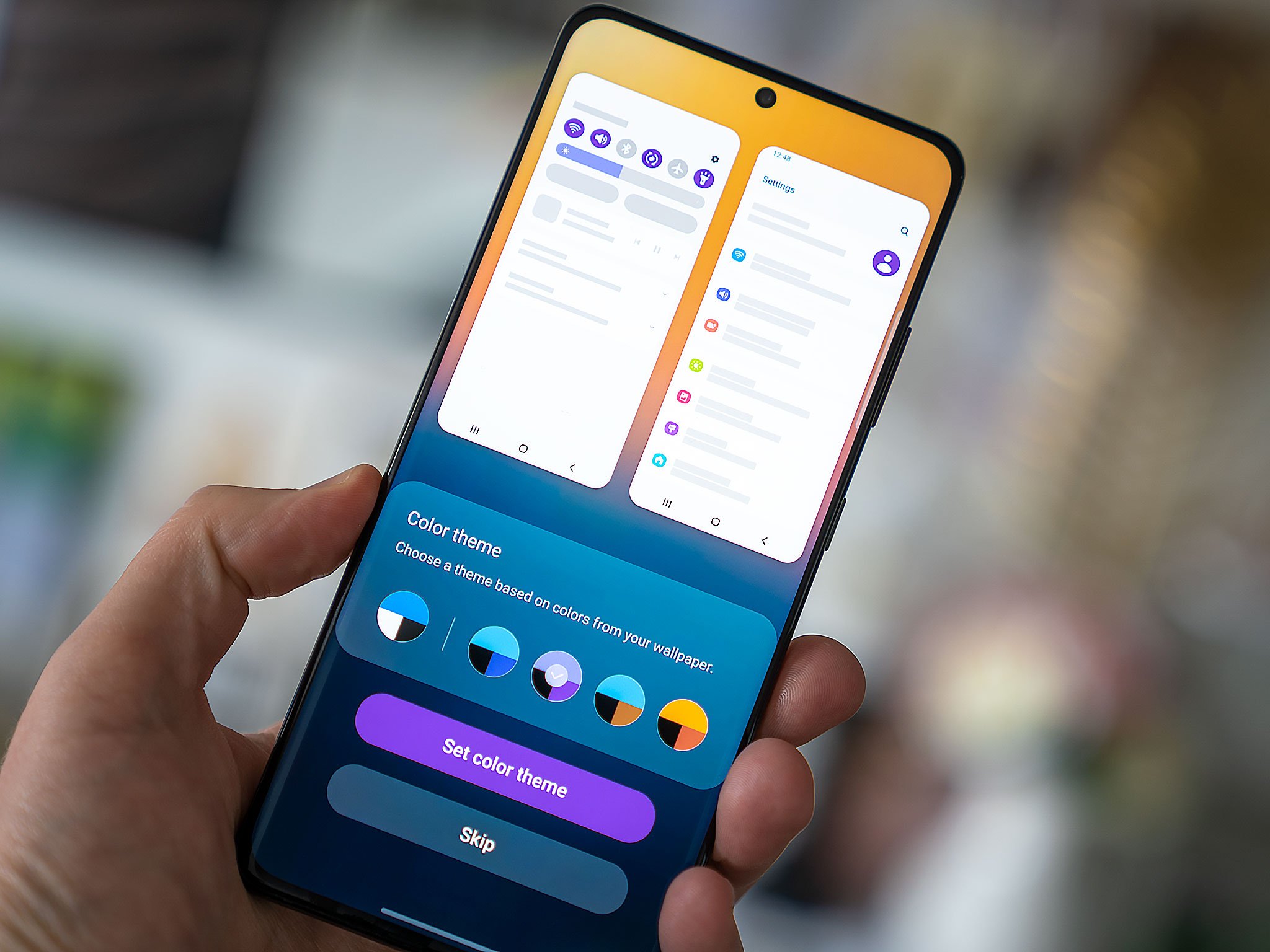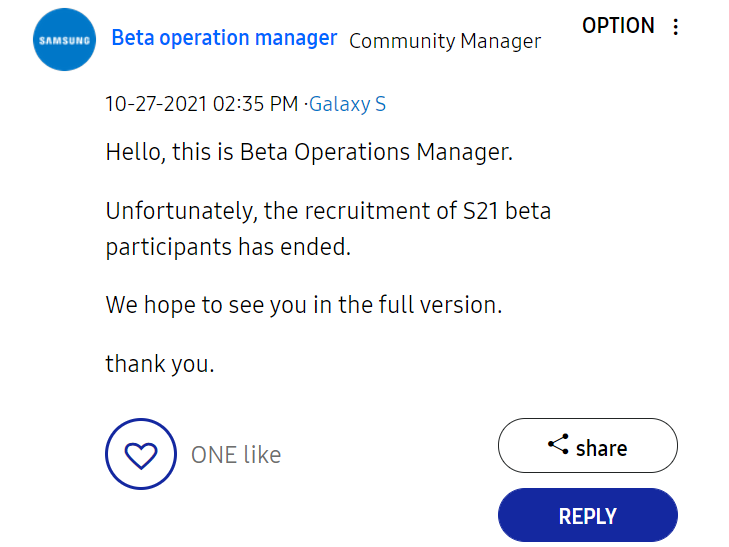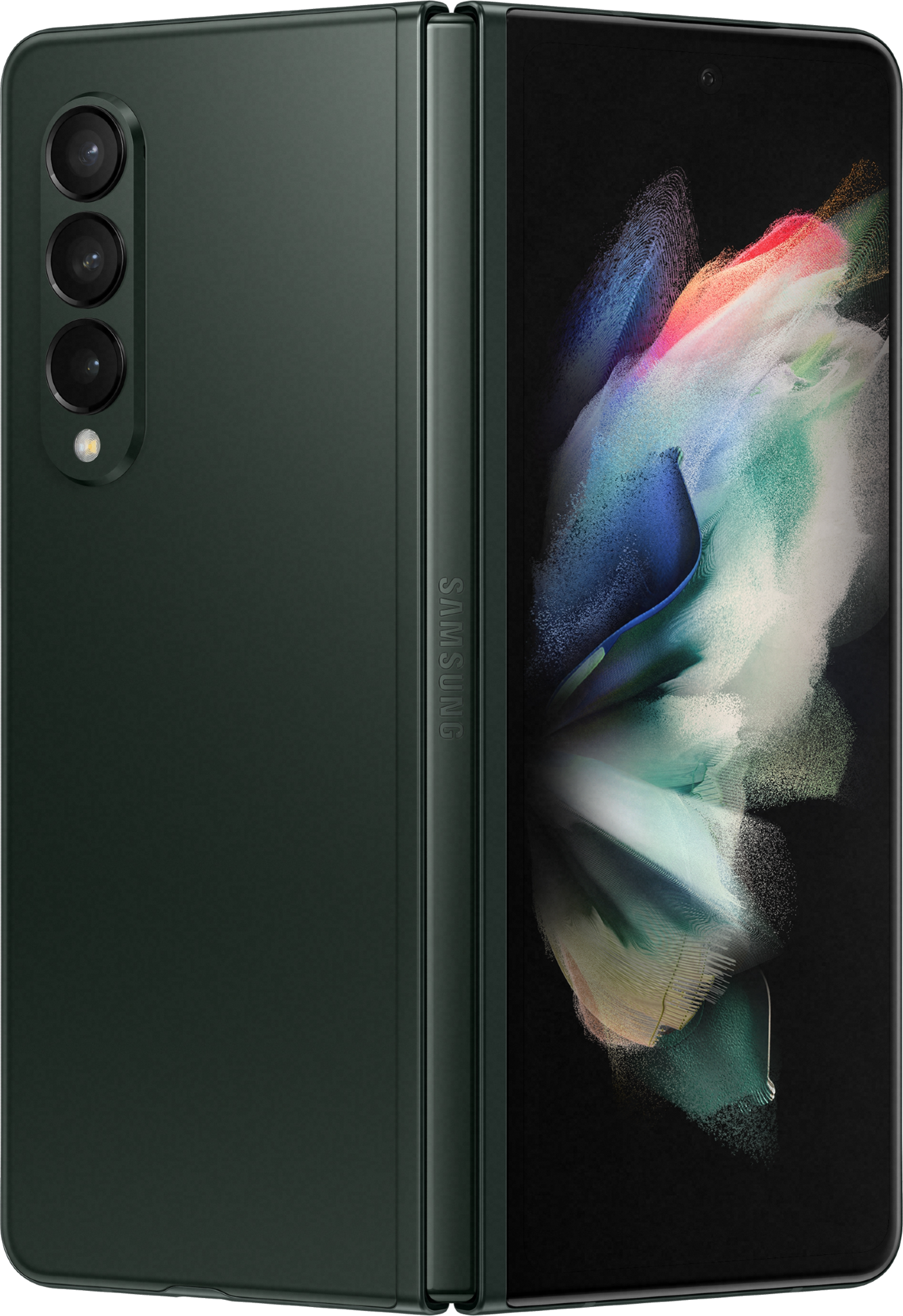If you were waiting to get in on the One UI 4 beta, you might be out of luck.
What you need to know
- Samsung has ended One UI 4 beta enrollments for the Galaxy S21.
- This comes just as the company prepares to launch the beta for its foldables.
- Samsung is expected to launch the stable One UI 4 before the end of the year.
There are more signs that Samsung is gearing up for the full stable One UI 4 (Android 12) launch on its best Android phones as the company puts an end to the beta program.
TizenHelp spotted a Samsung community post where a Beta Operator states that "the recruitment of S21 beta participants has ended."
While current Galaxy S21 beta users shouldn't be affected by this, it does mean that anyone who has held off on installing One UI 4 beta has more or less lost their opportunity to enroll.
This may only apply to those in South Korea, although it's likely that this will affect other regions as well, especially given how closely beta updates appear in other regions outside of Samsung's home country. In any case, we've reached out to Samsung for clarification and will update you when we hear back.
Meanwhile, Samsung is expected to launch the stable One UI 4 update before the end of the year, so it's not surprising that the company would put a halt on things. The third beta recently rolled out based on the final Android 12 build, so we can't be too far off from the final version of One UI 4.
Interestingly, this comes just after Samsung announced the impending beta program for its foldables like the Galaxy Z Fold 3. The program is expected to focus on enhancements to the foldable experience and should begin very soon.
Mainstream foldable
Samsung Galaxy Z Fold 3
From $899 at Samsung From $1590 at Amazon From $1800 at Best Buy
More reliable
The Galaxy Z Fold 3 represents among the best that Samsung has to offer, with a more durable, refined design, a new Under Display Camera for uninterrupted viewing, and S Pen support for better productivity.
Source: androidcentral


